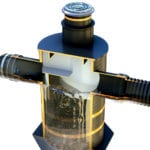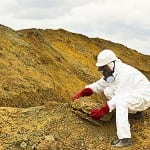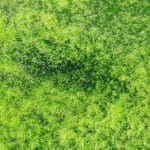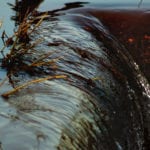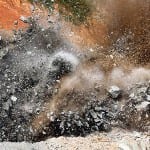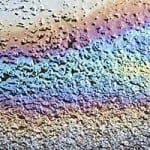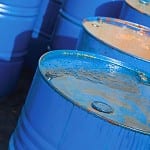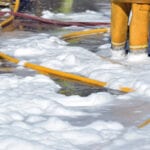Paint predominates in ocean plastics
Flakes of paint could be one of the most abundant types of microplastic particle in the ocean, according to new research.
Local authority SuDS demand prompts UK production deal, says supplier
Increasing Local Authority planning requirements for compliant Sustainable Drainage Systems (SuDS) in major developments is boosting demand for water quality treatment components, says supplier...
EU project addresses soil contamination
DECONTAMINATING and recovering the soil from polluted areas is a long, complex and expensive process. The LIFE I+DARTS project, co-financed by the EU’s environmental...
ISO 14001 consultation opens
The public consultation process for the international environmental standard ISO 14001 is now open with UK comments requested by 31 October 2014.
BSI, the UK’s...
In situ substrate for groundwater
REMEDIATION technologies specialist Regenesis announced the commercial launch of a fundamentally new and innovative remediation technology in May, called PlumeStop™ Colloidal Biomatrix.
As the...
Acid leak in Essex
FIREFIGHTERS were called to deal with a chemical leak in Purfleet in Essex on 5 September.
Crews reported that an unknown quantity of phosphoric acid...
Taming the black gold
Researchers at Imperial College London and the University of Toronto believe they have developed a sustainable and economical way to recover oil from ultra-cold industrial wastewater and oil spills
Oil and whisky don’t mix
A Scottish drinks company was recently fined £9,000 after a spill from its distillery.
Whyte and MacKay pleaded guilty at Tain Sheriff Court after...
Using algae to clean up mine water
A ground-breaking project aims to use live algae to offset the costs of mine water remediation by turning the treated water into biofuel.
The...
Report calls for greenfield surcharge to encourage brownfield development
A new “greenfield surcharge” is among a series of practical proposals to encourage future brownfield development, according to a new report from member-funded group...
Your business could be going down the drain
FORTY per cent of small and medium sized businesses which cause substantial environmental spills in the course of their operations will fail within 18...
Tap test gives faster way to confirm safety of oil and gas pipelines
A simple vibration test can help oil and gas companies prevent pipeline spills in a way that is faster and cheaper than conventional methods,...
Wastewater treatment plants are key route into UK rivers for microplastics, says study
Water samples from UK rivers contain significantly higher concentrations of microplastics downstream from wastewater treatment plants, a new study appears to reveal
Emergency shower keeps hazardous materials confined and adapts to climate
Spill containment specialist Empteezy launched a "ground-breaking new emergency shower" at the ADIPEC oil and gas exhibition and conference in Abu Dhabi on 7...
Chemical scare tackled
A CLEAN-UP team was called in when 23 people were taken to hospital following a chemical spill at a West Lothian warehouse.
Denatonium Benzoate, which...
Plants could clean TNT-tainted soil
BIOLOGISTS at the University of York have taken an important step in making it possible to clean large areas of land contaminated by explosives.
A...
Two-way flow on response ability
OIL Spill Response Ltd (OSRL), the international oil spill emergency response organisation, has signed a memorandum of understanding to deliver services to mutual clients...
Spill compliance gets more urgent
Heftier fines, and even the possibility of fines where a spill hasn't occurred but where there is a vulnerability, appear to signal a sturdier...
Welsh rivers in urban locations still have damaged food chains and fewer species of...
Toxic chemicals from past decades could be hindering the recovery of Britain’s urban rivers, concludes a recent study by scientists from Cardiff University, the...
Pulling out PFAS
Perfluoroalkyl and polyfluoroalkyl substances – known as PFAS – can be captured and destroyed in water bodies using a system demonstrated by a group at the University of Illinois at Urbana-Champaign.




